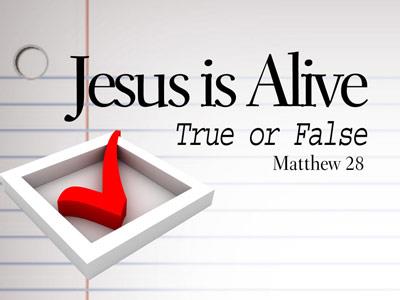-
Transformed! Series
Contributed by Pat Cook on Nov 28, 2017 (message contributor)
Summary: Part 5 in resurrection series - Changed lives are proof of the Resurrection. Based on Hank Hanegraaf’s acronym FEAT.
Romans 6:1-4 – Transformed!
James Calvert was a zealous 1800’s missionary to cannibals on the Fiji Islands. His faithful work bore fruit in the lives of those accustomed to taking the life of others. Years later and English earl visited the Fiji Islands and was critical of a chief’s conversion to Christianity. "You’re a great leader but it’s a pity you’ve been taken in by those foreign missionaries. No one believes the Bible anymore. People are tired of the threadbare story of Christ dying on a cross for the sins of mankind. They know better now. I’m sorry you’ve been so foolish as to accept their story."
The old chief responded with a gleam in his eyes, "See that great rock over there? On it we smashed the heads of our victims. Notice the furnace next to it. In that oven we formerly roasted the bodies of our enemies. If it hadn’t been for those good missionaries and the love of Jesus that changed us from Cannibals into Christians, you’d now be our supper!"
Jesus didn’t walk on this earth just to teach good moral values, or learn to sympathize with the weak and oppressed, or confront people with their sins. Yes, He did all this, but lots of other religious leaders have done that too. Nor was it that He ended His life. Jim Jones and David Koresh did that much for their causes too.
No, what set Jesus apart from any other religious leader was His perfect life, His perfect death, and His perfect resurrection. His rising from the dead sets Him apart from any other religious leader past, present or future. And in doing so, He can back up His promise that He can change us as well. Transformed lives give evidence to the fact of Jesus’ resurrection.
Today we wrap up our series on why we can believe in the Resurrection. We looked at His Fatal Torment – He really die that day on the cross. We looked at the Empty Tomb – His body was missing. We looked at His Appearances – He was seen after His death. And today we look at the last piece of evidence – Transformed Lives. Let’s read Romans 6:1-4 to see the change Jesus wants to make.
We will look at different people who were changed after the Resurrection, but first we will look at 3 traditions that were changed because of the Resurrection. 1) The tradition of the Sabbath. Now, the idea of the Sabbath going back all the way to Creation shows how deeply rooted it was. Saturday, the 7th day of the week, was the day for God. Every Jew knew that. It was their lifestyle.
So why did these early believers worship on Sunday? We know they did. Acts 20:7 tells us they had communion on Sunday. 1 Corinthians 16 tells us to take up an offering on Sunday. And John was in the Spirit on the Lord’s Day in Revelation 1. What caused the shift? Something must have happened to change their ideas of what day to worship God. It was Jesus’ Easter Sunday resurrection and appearances. He appeared the next Sunday as well. And Pentecost, when the Holy Spirit was poured out to all believers, was on a Sunday. The Resurrection changed the Sabbath.
2) The sacrifices also changed. Up till the time of Jesus’ life, blood sacrifices needed to be made. All the way back to the time of Abraham, every Jew knew that animals needed to be sacrificed in order to appease God. However, suddenly a group of Jews stopped sacrificing. Why? Because they came to understand that Jesus became the sacrifice – the spotless Lamb whose blood would work forever. The new covenant was better than the old. Jesus was the Lamb who took away the sins of the world.
And, 3) the sacraments changed. The sacraments were/are special commands by God that need to happen in the life of a Christian. The Catholic church has 7; we believe in 2: communion and baptism. Let’s look at each of these.
A) The Jews had Passover – a remembrance of God’s deliverance over the Egyptians at the Red Sea, out of bondage and into freedom. Jews for years had celebrated this. But then, these early believers had communion, or the Eucharist, or the Lord’s Supper. They remembered how Jesus had delivered them. But think about this for a second. Would followers of JFK celebrate his murder by Lee Harvey Oswald? Would fans of John Lennon celebrate his murder with joy at the hands of ? Would the families of the victims who died in the Washington sniper killings celebrate their loved ones deaths? No, of course not. There is no logical explanation for early Christians to celebrate their master’s death unless He rose again afterwards.

 Sermon Central
Sermon Central



